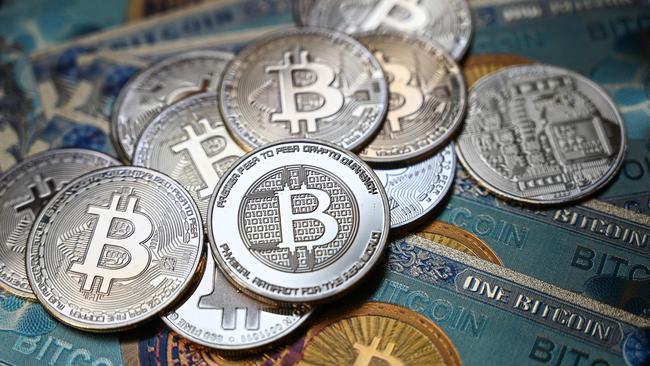Experts cautious about digital Australian currency
Experts say plans to establish a RBA-backed digital currency could risk ‘destabilise’ the Australian dollar and create a multitude of issues.

Business
Don't miss out on the headlines from Business. Followed categories will be added to My News.
Experts have warned that any move in Australia to produce its own central bank digital currency could risk destabilising regular currency and there were a multitude of issues to consider.
At least nine nations including China have imposed a ban on cryptocurrency and at least 14 more have implied bans.
At the same time, at least 10 countries reportedly want to launch their own blockchain currencies including the well documented case of China supposedly launching its e-yuan during the upcoming Winter Olympic Games.
Its Digital Currency Electronic Payment (DCEP) might seem another example of its obsession with political and financial control, but the concern internationally is likely broader, with nations worried about these currencies‘ impact on central banks, and retaining control of their taxation revenue systems and FIAT currencies in a blockchain world.
On the other hand, countries would be keen not to miss out on a competitive and potentially internationally lucrative new market that a central bank digital currency (CBDC) might offer.
China will likely roll out a bespoke form of CBDC that operates under national control and requires user identification in transactions. Test wallets are reportedly circulating now.
Australian Treasurer John Frydenberg’s plan to reform and regulate cryptocurrencies includes the idea of piloting a CBDC. The Reserve Bank has released its Project Atom report on CBDC’s with governor Philip Lowe reportedly in favour of a token approach to payments.
Blockchain currency expert Dimitrios Salampasis, from the School of Business, Law and Entrepreneurship at Melbourne’s Swinburne University of Technology, agreed that part of the underlying rationale behind a CBDC was to protect the FIAT currency because privately issued money created “a challenge for the actual rationale and viability of the currency”.
He said the RBA had been against a central bank digital currency from the beginning and these currencies were fraught with issues. “There is a lot of conversation globally about the fact that a central bank digital currency may also destabilise the financial system because this digital form of cash may also mean that people can withdraw money from commercial banks and target it to a central bank. So basically, we have a bank run that gets all the retail banks out of business,” Dr Salampasis said.
“There are so many different views on whether blockchain actually is going to be the underlying technology of a central bank digital currency. There is no real consensus at the moment.”
He said central banks would probably end up managing sovereign blockchain currencies, but this role would be totally against the decentralised philosophy of blockchain currencies.
He doubted society was ready to embrace full decentralisation of currencies. “Are we as economists ready to even understand what a full decentralised world means? For me, no, not yet.”
Barney Tan, Associate Professor Business Information Systems from University of Sydney Business School said it wasn’t only China – South Korea and Brazil were also among countries looking at launching a digital currency in 2022.
“I think to me, the main advantage of digital currency is the fact that it will be traceable. It’s traceable for the government; it’s also an alternative to physical cash.”
He said the Colonial Pipeline ransomware case in the US showed that, if governments really wanted to trace bitcoin, they could.
He said CBDCs could reduce the incidence of illicit payments. “We can only speculate at this point that one day we replace FIAT currency and one day, replace physical cash,” he said.
But he agreed that any idea that an Australian CBDC currency “disintermediated” entities such as retail banks and payments facilitators such as Visa suggested there is a long way to go with discussions.
Cryptocurrency meanwhile continues to languish with about $US1 trillion in market value wiped in recent weeks with bitcoin’s value dropping by about 40 per cent. Experts fear more losses are on the cards with the increasing likelihood of rising US interest rates, government cryptocurrency regulation, and restrictions on crypto trading in some countries.
The political upheaval in Kazakhstan and the associated internet shutdown there also has impacted bitcoin, with Kazakhstan having been the world’s second-biggest bitcoin mining nation.
Some remain optimistic about the future. A report commissioned by Australian crypto miner Mawson Infrastructure said that with reform and growth, the contribution of the cryptocurrency and digital asset sector could increase to $68.4bn with employment of more than 200,000 Australians by 2030,” the report’s key finding said.
Originally published as Experts cautious about digital Australian currency



